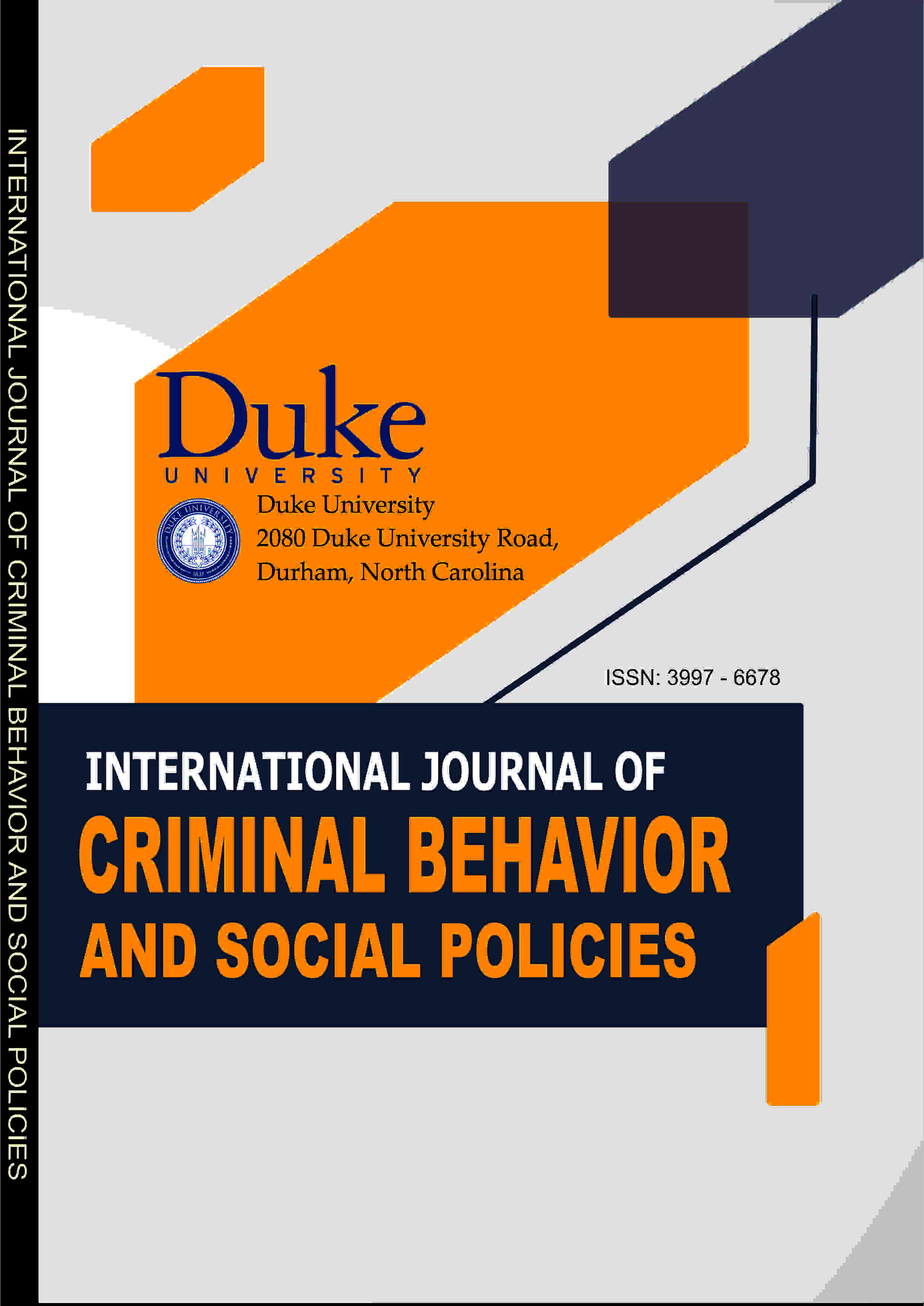INTERNATIONAL JOURNAL OF CRIMINAL BEHAVIOR AND SOCIAL POLICIES (IJCBSP)
WHY INDIAN CRIMINOLOGY STRUGGLES TO INFLUENCE PUBLIC POLICY?
E-ISSN: 5667-8342
P-ISSN: 3997-6678
DOI: https://iigdpublishers.com/article/47
Criminologists seek to answer directly or indirectly to the questions of public policy such as: why some people commit crime? How to prevent (or reduce) the incidence of crime/victimization? And how to rehabilitate offenders? Despite this seemingly natural connection, Indian Criminology has had little to no measurable effect on matters of public policy than some might expect. There is an imperative need for Indian Criminologists to engage directly in the policy arena, and advance the relationship between criminology, public policy and practice.
R. Rochin Chandra, Sony Kunjappan & K. Jaishankar
American Society of Criminology Public Policy Education in Washington DC. (n.d.) Retrieved from https://www.asc41.com/policies/Raben_Paper.pdf.
Blomberg, T. G., Mestre, J., & Mann, K. (2013). Seeking Causality in a World of Contingency: Criminology, Research, and Public Policy. Criminology & Public Policy, 12(8), 575-580
Chandra, R. R. (2018). Relevance of Criminology in Public Policy Formation. Inaugural Press Conference of the Center for Criminology & Public Policy, Udaipur, Rajasthan.
Criminology & Public Policy. (n.d). Retrieved from http://criminal-justice. iresearchnet.com/ criminology/criminology-and-public-policy.
Jaishankar, K. (2017a). Why and How to Market Criminology to the Policy Makers? On Personal Communication.
